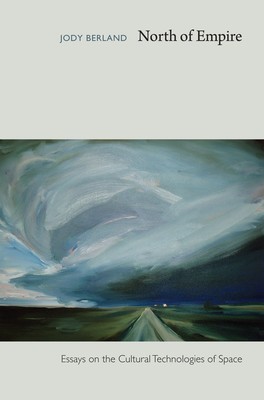
- We will send in 10–14 business days.
- Author: Jody Berland
- Publisher: Duke University Press
- ISBN-10: 0822343061
- ISBN-13: 9780822343066
- Format: 15.5 x 23.4 x 2.5 cm, minkšti viršeliai
- Language: English
- SAVE -10% with code: EXTRA
Reviews
Description
For nearly two decades, Jody Berland has been a leading voice in cultural studies and the field of communications. In North of Empire, she brings together and reflects on ten of her pioneering essays. Demonstrating the importance of space to understanding culture, Berland investigates how media technologies have shaped locality, territory, landscape, boundary, nature, music, and time. Her analysis begins with the media landscape of Canada, a country that offers a unique perspective for apprehending the power of media technologies to shape subjectivities and everyday lives, and to render territorial borders both more and less meaningful. Canada is a settler nation and world power often dwarfed by the U.S. cultural juggernaut. It possesses a voluminous archive of inquiry on culture, politics, and the technologies of space. Berland revisits this tradition in the context of a rich interdisciplinary study of contemporary media culture.
Berland explores how understandings of space and time, empire and margin, embodiment and technology, and nature and culture are shaped by broadly conceived communications technologies including pianos, radio, television, the Web, and satellite imaging. Along the way, she provides a useful overview of the assumptions driving communications research on both sides of the U.S.-Canadian border, and she highlights the distinctive contributions of the Canadian communication theorists Harold Innis and Marshall McLuhan. Berland argues that electronic mediation is central to the construction of social space and therefore to anti-imperialist critique. She illuminates crucial links between how space is traversed, how it is narrated, and how it is used. Making an important contribution to scholarship on globalization, Berland calls for more sophisticated accounts of media and cultural technologies and their complex "geographies of influence."
EXTRA 10 % discount with code: EXTRA
The promotion ends in 23d.04:42:18
The discount code is valid when purchasing from 10 €. Discounts do not stack.
- Author: Jody Berland
- Publisher: Duke University Press
- ISBN-10: 0822343061
- ISBN-13: 9780822343066
- Format: 15.5 x 23.4 x 2.5 cm, minkšti viršeliai
- Language: English English
For nearly two decades, Jody Berland has been a leading voice in cultural studies and the field of communications. In North of Empire, she brings together and reflects on ten of her pioneering essays. Demonstrating the importance of space to understanding culture, Berland investigates how media technologies have shaped locality, territory, landscape, boundary, nature, music, and time. Her analysis begins with the media landscape of Canada, a country that offers a unique perspective for apprehending the power of media technologies to shape subjectivities and everyday lives, and to render territorial borders both more and less meaningful. Canada is a settler nation and world power often dwarfed by the U.S. cultural juggernaut. It possesses a voluminous archive of inquiry on culture, politics, and the technologies of space. Berland revisits this tradition in the context of a rich interdisciplinary study of contemporary media culture.
Berland explores how understandings of space and time, empire and margin, embodiment and technology, and nature and culture are shaped by broadly conceived communications technologies including pianos, radio, television, the Web, and satellite imaging. Along the way, she provides a useful overview of the assumptions driving communications research on both sides of the U.S.-Canadian border, and she highlights the distinctive contributions of the Canadian communication theorists Harold Innis and Marshall McLuhan. Berland argues that electronic mediation is central to the construction of social space and therefore to anti-imperialist critique. She illuminates crucial links between how space is traversed, how it is narrated, and how it is used. Making an important contribution to scholarship on globalization, Berland calls for more sophisticated accounts of media and cultural technologies and their complex "geographies of influence."


Reviews